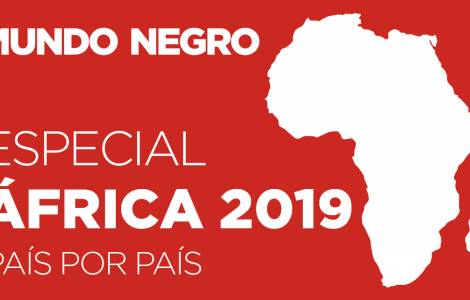
Rome (Agenzia Fides) - A continent with one billion and 300 million inhabitants, 40% of whom are under 15, and 60% do not reach 25 years of age. And it is to this Africa that the magazine Mundo Negro, published in Spain by the Comboni Missionaries, has dedicated a special issue. This is a monographic edition that is published every three years which offers an "X-ray" of the African continent, in order to keep, as the editorial says, "Africa in hand".
The number presents a series of comments, statistics and dossiers from each of the 55 African Countries, which offers readers a precise and at the same time agile picture.
Among the topics discussed there is that of migration, with an article that takes up the theses supported by Stephen Smith in his book "Rush to Europe". The majority of African migrants move from one Country to another on the same black continent, only a minimal part tries the journey to Europe. The latter, underlines Smith, are people who belong to the nascent African middle class. "The fact of losing the most dynamic elements or those that are best educated is a great loss for Africa", stresses Smith, according to whom even the remittances of migrants from Europe to Africa have a negative effect for the development of the Country of origin.
The loss of human capital has negative effects on the economy, on society and on the politics of the Countries of emigration. "The existence of a middle class is necessary for the construction of a democracy. The poor have no time or the opportunity to dedicate themselves to politics while the rich and powerful hardly collaborate in the construction of democracy".
At an ecclesial level, Fr. Francesco Pierli, in his article "Unite, Heal and Build" describes the evolution of religious life in a changing Africa, underlining the social role of the Church which, in its activity of evangelization, accompanies the development of local societies thanks to its network of schools, training centers, hospitals and clinics. (L.M.) (Agenzia Fides, 11/7/2019)